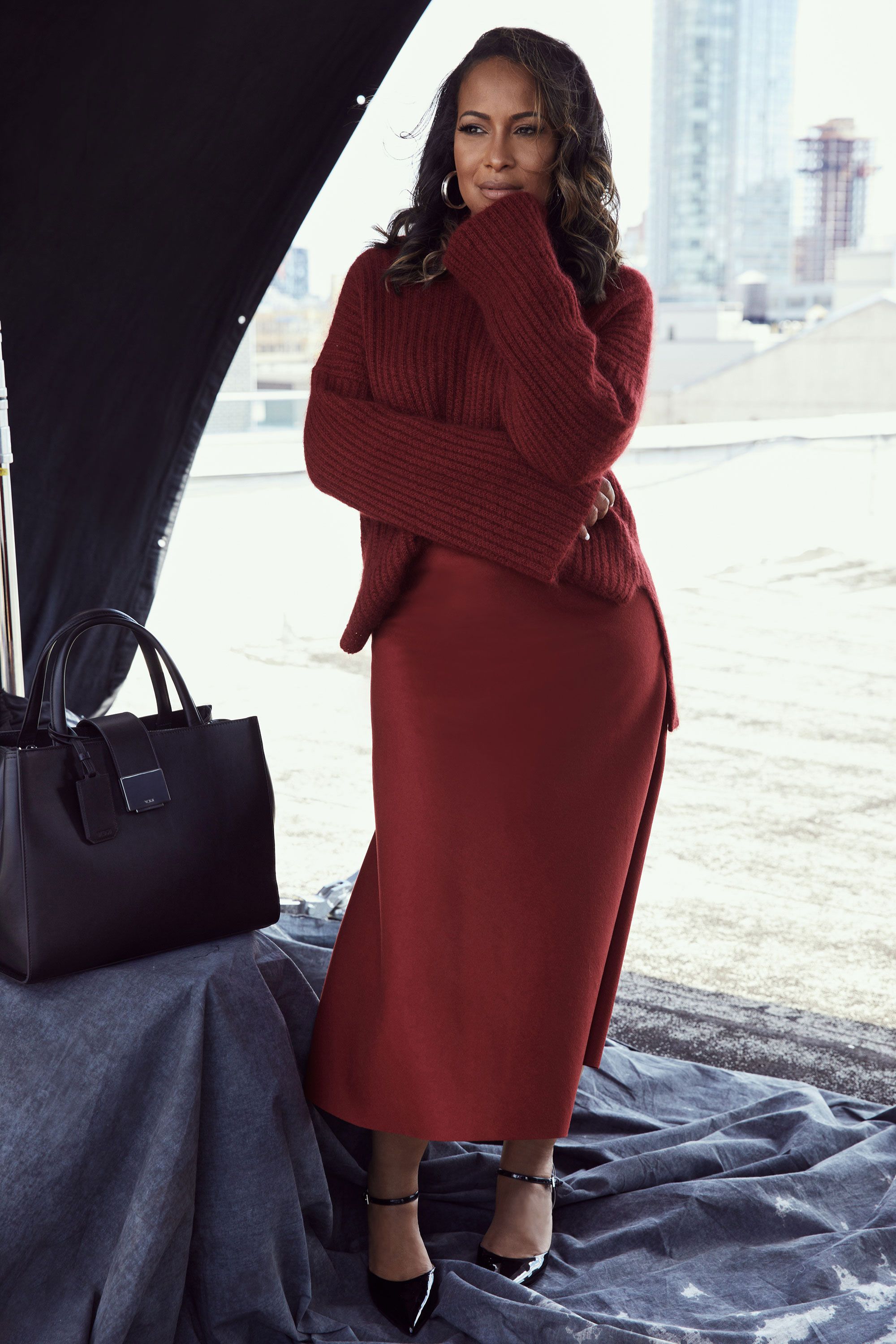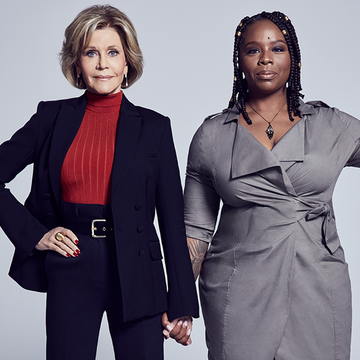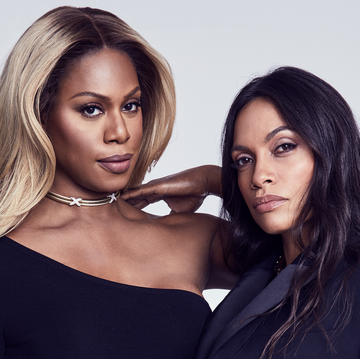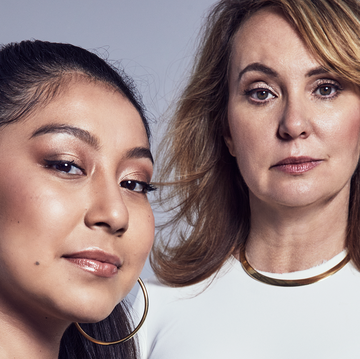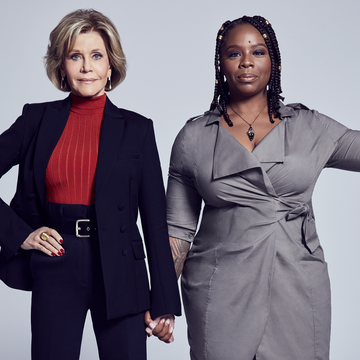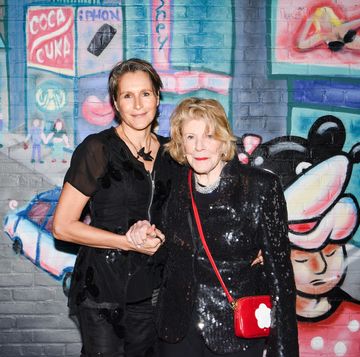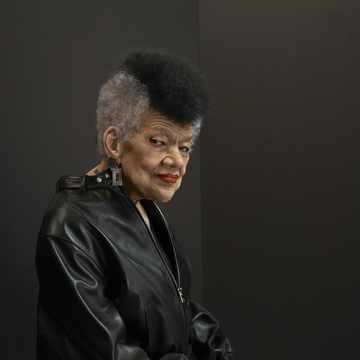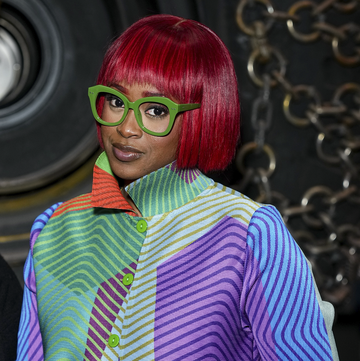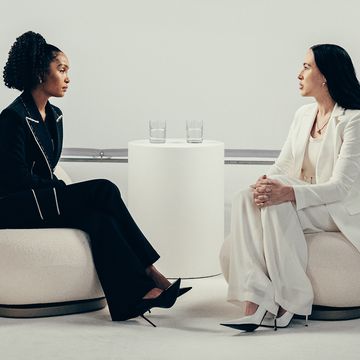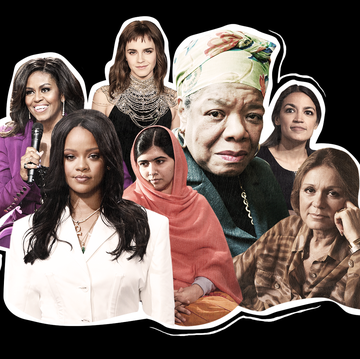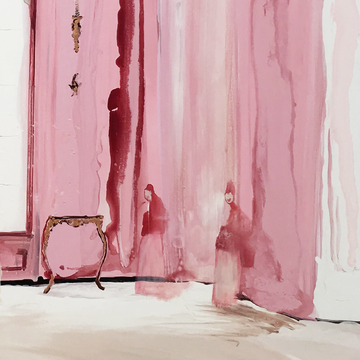“I want to create something that will outlive me,” says Google’s Valeisha Butterfield-Jones. “I want to leave behind a legacy. I’m not sure what it is yet, but I want to build something that can empower a community, and I know it’s going to be centered around women.”
If Butterfield-Jones makes fulfilling sky-high ambitions sound deceptively easy, perhaps it’s because of the heights she has already achieved. A former senior-level Obama campaign consultant, she was hired by Google in 2016 for a newly created position: Global Head of Women and Black Community Engagement.
It’s well-known that tech has a gender and a racial diversity problem. As of 2016, the most recent year for which figures are available, Google’s workforce was only 2% black and 31% female. Butterfield-Jones has been tasked with helping the company better reflect the diverse world it works in. “It's trying to disrupt the status quo,” she says, with a smile that belies her determination.
Butterfield-Jones grew up in small-town North Carolina. Her parents are both prominent politicians: her father, G.K. Butterfield, is a member of congress, and up until recently was the head of the Congressional Black Caucus. Her mother, Jean Farmer-Butterfield, is a North Carolina state legislator. When Butterfield-Jones was in high school, her father was a judge. “I remember going to public school and seeing some of my friends actually have to go in front of my dad in court,” she says. “It was just this serious, I would say, awakening for me. I realized that if you don't have the right people in leadership positions, then sometimes the right thing doesn't always happen.”
When it comes to increasing diversity in tech, Butterfield-Jones thinks the greatest challenge is “decoding what the real barriers to entry are, for people of color and for women.” To that end, as one of her first projects at Google, she organized an event called Decoding Race, which took place at nine of the company’s offices around the world. Van Jones spoke with Google’s chief legal officer David Drummond, and over 15,000 employees took part in facilitated discussions about race, gender, access, and equality. She has also founded a program that connects talented students at historically black colleges and universities with Google internships.
TUMI Rivas Backpack SHOP
“I'm proud to work for a company that really wants to get it right and figure it out,” Butterfield-Jones says. She thinks tech’s diversity problem is a legacy of the conditions under which the industry’s leading companies were founded. “I really don't believe that as an industry, it's coming from a place of hate at all,” she says. “I really don't. I think these companies were just set up by friends of friends of friends, who hired their friends. They scaled and grew so fast that now we're trying to fix a problem that started at the core of the foundation.”
However, as she notes, just because a problem isn’t rooted in malice doesn’t make it easy to solve. “We're trying to break the system, to rebuild it, and to make it better. It is hard work,” she says. “Having good intentions isn't enough. You have to actually do the work. I'm committed, and I know we are, to doing the work.”
Since she was a young girl, Butterfield-Jones has always loved fashion. “I'm fashion-obsessed,” she laughs. “If you met my mom you would be like, ‘Okay, I get it.’ She's just always in designer clothes. She won't go to the grocery store without being dressed.” Growing up, mother and daughter took shopping trips together to New York City or Washington, D.C. Butterfield-Jones loves that there’s no dress code in tech, but she is aware that in such a male-dominated industry, expressing an interest in fashion can play against you. “During my interview process I definitely toned it all the way down,” she says. “Now that I'm there I've turned it back up. I'm like, ‘Surprise.’”
One piece of advice she has for other women who feel pulled in a million different directions is to learn the power of saying no. “I've started using the word ‘no’ a lot lately,” she says. “That's something that I was never comfortable with, just actually saying no. I was a people pleaser. I've used that word more now in the last two years than I ever have in my life.” Turning down ideas and projects that she isn’t inspired by is a way of guarding her time for who and what she does care deeply about, including her children and husband, NBA player Dahntay Jones. “It needs no explanation,” she says, with a smile. “‘No’ is enough.”
TUMI Vivian Tote SHOP

Jenna Sauers is a New York-based writer originally from New Zealand. She completed an M.F.A. in nonfiction writing at the University of Iowa, and her journalism and essays have appeared in GQ, Elle, Marie Claire, Buzzfeed, and the Village Voice.




